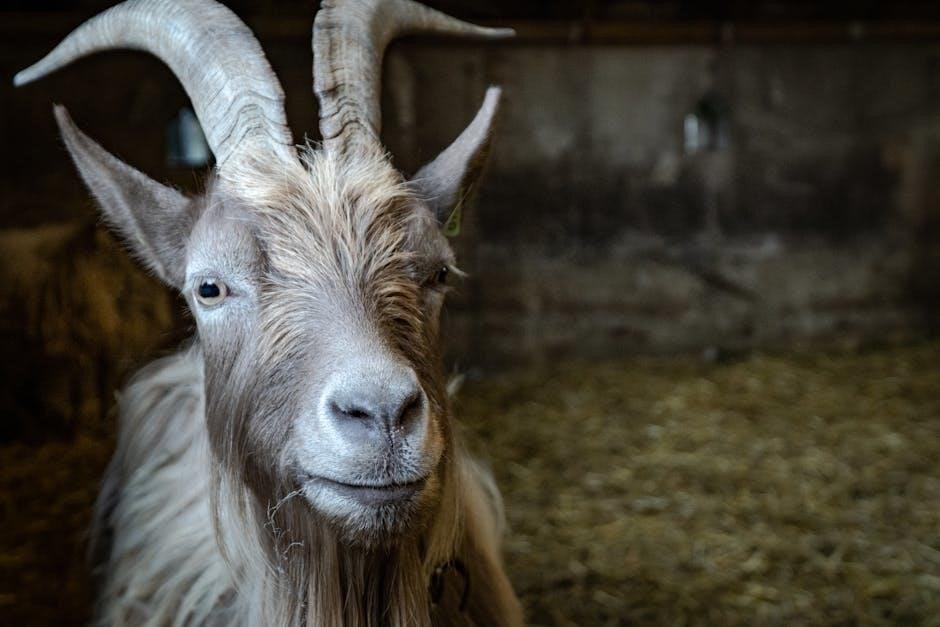Animal Farm, written by George Orwell, is a timeless allegorical novel published in 1945, exploring themes of power, corruption, and rebellion through farm animals’ struggles․ This guide provides essential questions and answers to deepen your understanding of the plot, characters, and themes, helping you analyze the novel’s historical and political significance effectively․
Background and Context of George Orwell’s Animal Farm
George Orwell’s Animal Farm, published in 1945, is an allegorical novel reflecting the events of the Russian Revolution and the rise of Stalinism․ Orwell, a critic of totalitarianism, used the story of farm animals rebelling against their owner to critique the corruption of power and the erosion of ideals․ Set on Manor Farm, the narrative mirrors the Soviet Union’s transformation under Stalin, with the pigs representing the ruling elite․ The novel’s context is deeply rooted in Orwell’s disillusionment with political ideologies and his concern for individual freedom․ This study guide provides insights into the historical backdrop and thematic depth of Animal Farm, aiding readers in understanding its timeless relevance․

Overview of the Novel’s Plot and Themes
Animal Farm, by George Orwell, narrates a rebellion by farm animals against their oppressive owner, Mr․ Jones, inspired by Old Major’s vision of equality․ The pigs, led by Napoleon and Snowball, initially champion Animalism, but power corrupts them, leading to exploitation and tyranny․ Key themes include the corrupting influence of power, betrayal of ideals, and dangers of totalitarianism․ The novel explores how those in authority manipulate others through propaganda and fear, highlighting the loss of freedom and the cyclical nature of oppression․ This study guide provides questions and answers to help analyze the plot twists, character motivations, and Orwell’s critique of political systems, offering insights into the novel’s enduring relevance․

Major Themes in Animal Farm
The novel explores themes of power corruption, totalitarianism, and the betrayal of ideals, highlighting how authority figures exploit others for control, leading to oppression and cyclical suffering․
The Concept of Animalism and Its Development
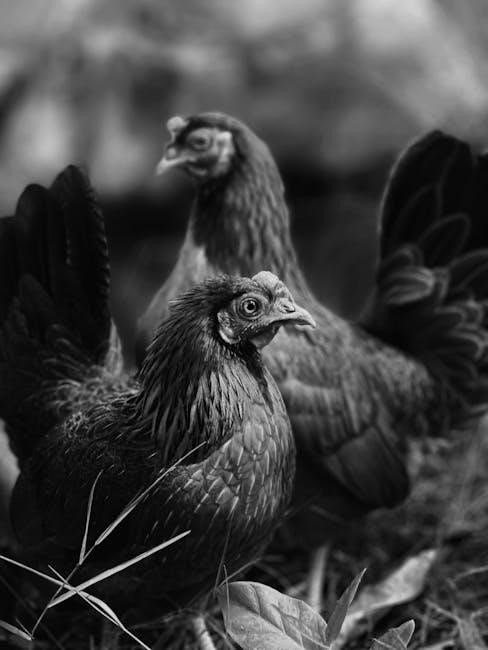
Animalism, introduced by Old Major, is a philosophy advocating freedom and equality for animals, rebelling against oppressive human rule․ Initially, it unites the animals in their struggle against Mr․ Jones, with the Seven Commandments as their moral framework․ Over time, however, the pigs, led by Napoleon and Snowball, manipulate these principles to justify their growing power and privileges․ This ideological shift reflects how revolutionary ideals can be distorted by those in control, leading to corruption and inequality․ The development of Animalism mirrors historical revolutions, such as the Russian Revolution, where power consolidates among a select few, undermining the original utopian vision․
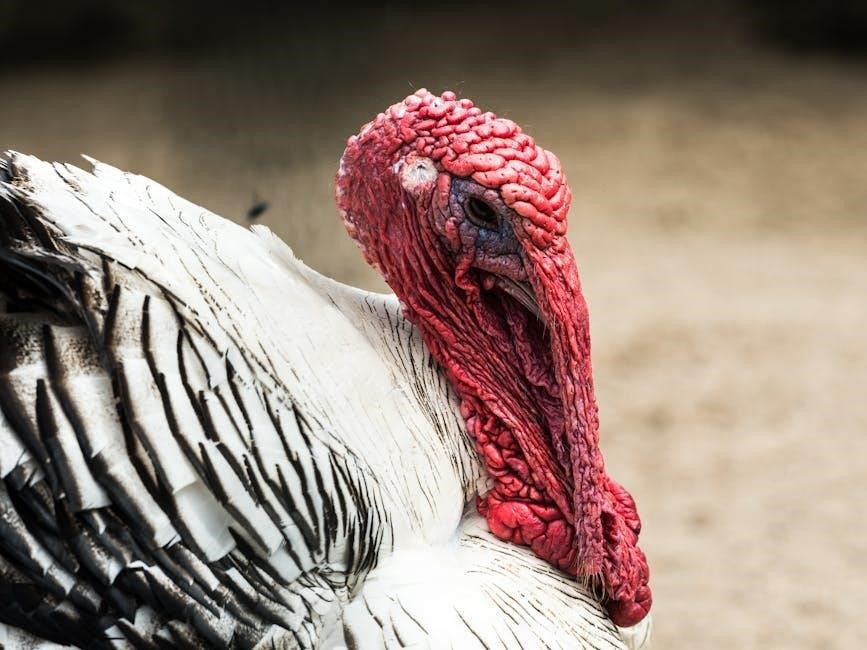
Corruption and Power Dynamics Among the Pigs
The pigs, initially leaders of the Animalist revolution, gradually succumb to corruption as they consolidate power․ Napoleon and Snowball’s rivalry exemplifies the struggle for dominance, with Napoleon expelling Snowball to maintain control․ The pigs manipulate the Seven Commandments to justify their privileges, such as sleeping in beds and consuming alcohol, which erodes the principles of equality․ Squealer, the propagandist, distorts reality to maintain the pigs’ authority, illustrating how language can be weaponized to control others․ This corruption reflects the dangers of unchecked power and the betrayal of revolutionary ideals, transforming the pigs into oppressors indistinguishable from the humans they initially rebelled against․
Totalitarianism and Its Reflection in the Story
Animal Farm serves as a powerful allegory for totalitarianism, mirroring the rise of fascist and communist regimes․ The pigs’ consolidation of power and suppression of dissent reflect the mechanisms of totalitarian control․ Napoleon’s leadership embodies the cult of personality, while Squealer’s manipulation of facts and history aligns with propaganda tactics used by totalitarian regimes․ The altering of the Seven Commandments and the false narrative of unity mask the pigs’ exploitation, showcasing how totalitarian systems distort truth to maintain power․ The novel critically examines how fear, manipulation, and surveillance are used to suppress individual freedom, offering a cautionary tale about the dangers of authoritarian rule and the erosion of democratic ideals․
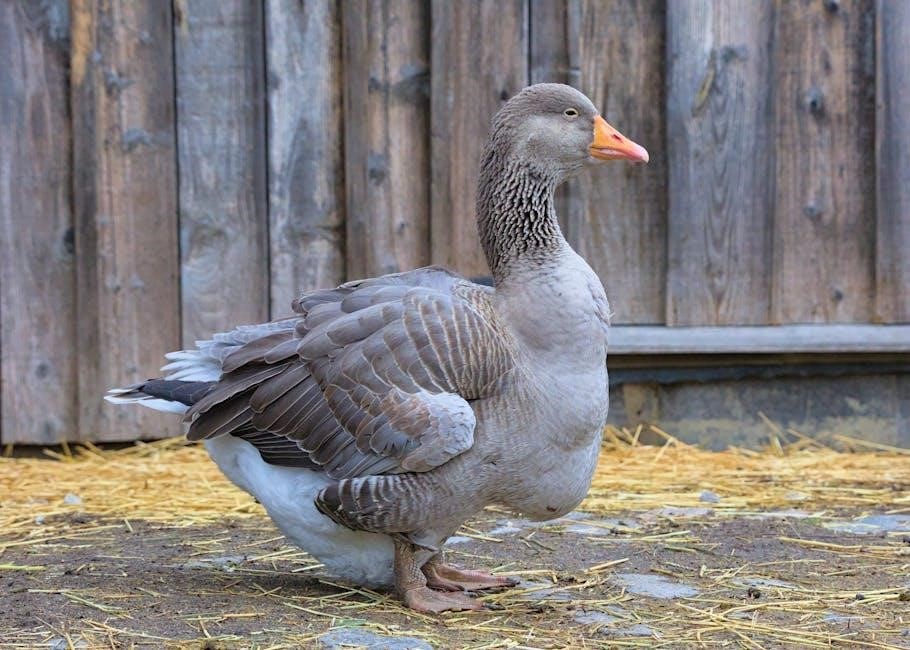
Character Analysis
Animal Farm features diverse characters, each representing human qualities․ The pigs embody power struggles, while Boxer symbolizes loyalty and Benjamin reflects skepticism․ Study guides explore their roles, motivations, and themes like corruption and rebellion, offering insights into Orwell’s timeless allegory․
Napoleon: The Rise to Power and Leadership Style
Napoleon, a cunning and manipulative pig, rises to power after the rebellion, gradually consolidating control by exploiting fear and propaganda․ His leadership style is authoritarian, relying on Squealer to justify his actions and maintain loyalty․ Napoleon adapts the Seven Commandments to suit his agenda, eroding the original ideals of Animalism․ His decisions, such as trading with neighboring farms, spark controversy among the animals, yet he maintains dominance through clever rhetoric and force․ Napoleon’s transformation mirrors the corruption of power, reflecting Orwell’s critique of totalitarian regimes and the dangers of unchecked authority․ Study guides highlight his pivotal role in the novel’s themes of power and betrayal․
Snowball: Ideology and Conflict with Napoleon
Snowball, a charismatic and idealistic pig, plays a central role in the early stages of the rebellion, advocating for the principles of Animalism․ His vision for a utopian society contrasts with Napoleon’s pragmatic approach, leading to a bitter power struggle․ Snowball’s intellectual leadership and persuasive oratory skills make him a threat to Napoleon, who eventually expels him from the farm․ Despite his exile, Snowball’s legacy remains a symbol of lost ideals, while Napoleon manipulates his absence to consolidate power․ Study guides often explore how Snowball’s expulsion reflects Orwell’s critique of political power struggles and the suppression of dissent in totalitarian regimes․
Boxer: Symbolism and Role in the Rebellion
Boxer, a loyal and hardworking horse, embodies the themes of dedication and naivety in Animal Farm․ His unwavering commitment to the rebellion and his belief in Napoleon’s leadership highlight the exploitation of the working class․ Boxer’s physical strength and selfless efforts symbolize the backbone of the farm, yet his eventual collapse and mistreatment reveal the consequences of blind loyalty․ Study guides often analyze how Boxer’s character represents the tragic fate of those who trust authority unconditionally․ His famous maxim, “I will work harder,” underscores the tension between individual effort and systemic oppression, making him a poignant symbol of the novel’s critique of totalitarianism․
Benjamin: Skepticism and Perceptive Nature
Benjamin, the wise and aged donkey in Animal Farm, represents skepticism and keen insight․ He is one of the few animals who sees through the pigs’ manipulation and the corruption of Animalism․ Despite his awareness, Benjamin rarely intervenes, choosing instead to observe silently․ His cautious nature and refusal to blindly follow the pigs highlight his intelligence and independence․ Study guides often emphasize Benjamin’s role as a voice of reason, offering a critical perspective on the events unfolding on the farm․ His friendship with Boxer and his ultimate realization of the pigs’ betrayal underscore his complexity as a character, making him a focal point for analyzing themes of truth and disillusionment in the novel․
Study Guide Questions and Answers
This section provides insights into key plot events, character motivations, and thematic analysis, helping students understand Animal Farm through structured questions and detailed answers․
Understanding the Plot: Key Events and Their Significance
The novel begins with Old Major’s speech, inspiring the animals to rebel against Mr․ Jones, leading to the expulsion of the farmer․ The pigs, led by Napoleon and Snowball, establish Animalism, a set of principles for equality․ The Seven Commandments, painted on the barn, guide the animals․ Key events include the pigs’ gradual corruption, the expulsion of Snowball, and Napoleon’s rise to power․ The Battle of the Cowshed and Boxer’s tragic fall highlight the animals’ resilience and exploitation․ The novel concludes with pigs indistinguishable from humans, symbolizing the betrayal of the revolution․ These events illustrate Orwell’s critique of power, corruption, and totalitarianism․
Analyzing Themes: Essay Questions and Responses
Essay questions on Animal Farm often focus on its central themes, encouraging deep analysis of Orwell’s critique of power and corruption․ Consider discussing how Animalism evolves and why it fails, or analyzing the role of propaganda through Squealer’s manipulations․ You might explore how totalitarianism is depicted through Napoleon’s leadership and its impact on the farm’s unity․ Additionally, questions about the symbolism of specific characters, like Boxer representing the exploited working class, or the pigs embodying corruption, can lead to insightful responses․ These questions help students connect the novel’s themes to real-world political and social issues, enhancing their understanding of Orwell’s timeless message․
- How does the novel portray the corrupting influence of power?
- What role does propaganda play in shaping the animals’ beliefs?
- How does the story critique totalitarian regimes?
Character Motivations: In-Depth Analysis
The characters in Animal Farm are driven by distinct motivations that shape their actions and the novel’s outcome․ Napoleon seeks power and control, manipulating events to maintain his leadership․ Snowball, in contrast, is idealistic, striving for equality and justice but ultimately clashing with Napoleon․ Boxer’s unwavering loyalty and dedication to the farm stem from his desire to prove his worth, while Benjamin’s skepticism and detachment reflect his pragmatic view of life․ These motivations not only drive the plot but also illustrate Orwell’s critique of power dynamics and human nature․ Understanding these complexities enhances the reader’s appreciation of the novel’s depth and themes․
Key Points:
- Napoleon: Desire for power and control․
- Snowball: Ideals of equality and justice․
- Boxer: Loyalty and dedication․
- Benjamin: Skepticism and survival instincts․

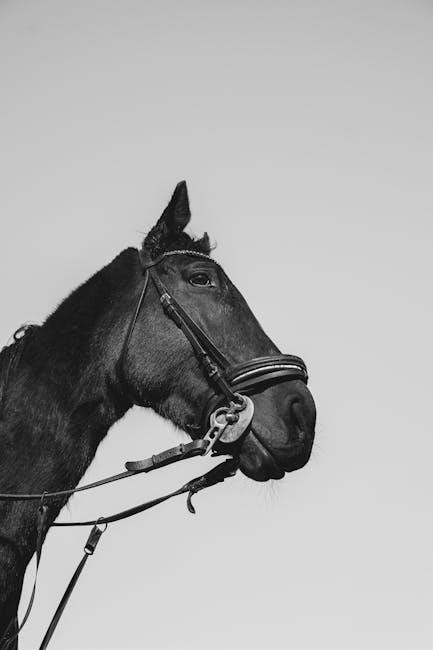
Resources for Further Study
Explore Animal Farm study guides, PDF resources, and educational websites for in-depth analysis․ Utilize literature study guides by Dr․ Gerald R․ Culley and Sabrina Justison for enhanced understanding․
Recommended Study Guides and PDF Resources
Enhance your understanding of Animal Farm with recommended study guides and PDF resources․ Dr․ Gerald R․ Culley and Sabrina Justison’s literature study guide is ideal for homeschoolers, offering insights into themes and characters․ Additionally, Quizlet provides flashcards for key terms and concepts․ PDF resources like “Animal Farm Study Guide Questions and Answers” offer comprehensive analysis, including chapter summaries and essay prompts․ These tools help deepen your grasp of Orwell’s allegorical novel, making it easier to analyze its historical and political undertones․ Utilize these resources to prepare for exams or discussions, ensuring a thorough understanding of the novel’s complexities․
Sample Answers to Common Study Questions
Common study questions about Animal Farm include inquiries about its central message, themes, and character motivations․ Sample answers highlight that the novel critiques totalitarianism, as seen through the pigs’ corruption․ Questions about Boxer’s symbolism often focus on his representation of working-class loyalty and exploitation․ Answers also explore how Napoleon and Snowball embody political ideologies, with Napoleon reflecting authoritarianism․ Resources like Dr․ Gerald R․ Culley’s study guide provide detailed analyses, such as explaining how the pigs manipulate language to maintain power․ These sample answers and guides help students grasp Orwell’s critique of power dynamics and the erosion of ideals, making them invaluable for essay preparation and discussions․
